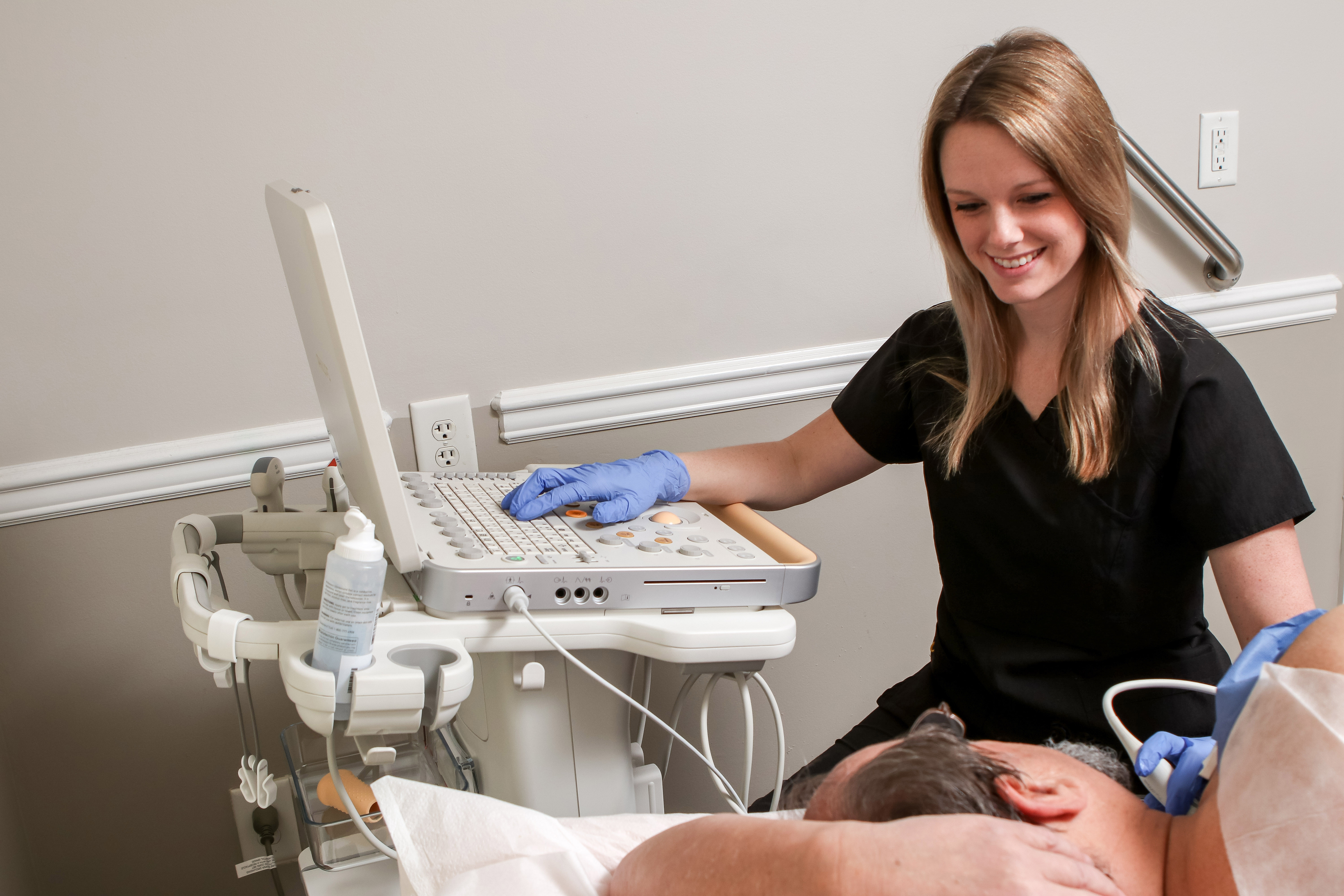
An echocardiogram (also called an echo) is a type of ultrasound test that uses high-pitched sound waves to evaluate your heart. The sound waves create “echoes” that convert to moving pictures of your heart projected on a video screen.
There are different types of echocardiograms:
Transthoracic Echocardiogram (TTE)
A Transthoracic Echocardiogram (TTE), the most common type, can be performed quickly and is used for overall evaluation of your heart. You do not need any special preparation for a TTE.
Stress Echocardiogram
A Stress Echocardiogram is done before and after your heart is “stressed” – either by having you exercise or by injecting a medicine that makes your heart beat harder and faster. This test is done to assess symptoms, such as chest pain, shortness of breath or palpitations, to determine whether the symptoms are coming from the heart. From a ‘Stress Test,’ can also determine if coronary heart disease is possible and if additional testing is needed. We are also able to see if enough blood flows to your heart as you become more active; evaluate how your heart medications are working; identify abnormal heart rhythms; and see how well your heart valves are working. Because this test involves “stress” (either through physical exercise or injection), we carefully monitor our patients to check for chest or arm discomfort, shortness of breath, dizziness or other unusual symptoms that suggest the test should be stopped. During this test, it is normal for your heart rate, blood pressure, breathing rate, and perspiration to increase.
To prepare for a Stress Echocardiogram: Don't eat or drink anything except water for 4 hours before the test. Do not have caffeine for 12 hours before the test. Wear flat, comfortable shoes (no bedroom slippers or sandals) and loose, lightweight shorts or sweatpants. Be sure to follow your doctor's instructions for what medications you may or may not take before your test. If you use an inhaler for your breathing, bring it with you to the test.